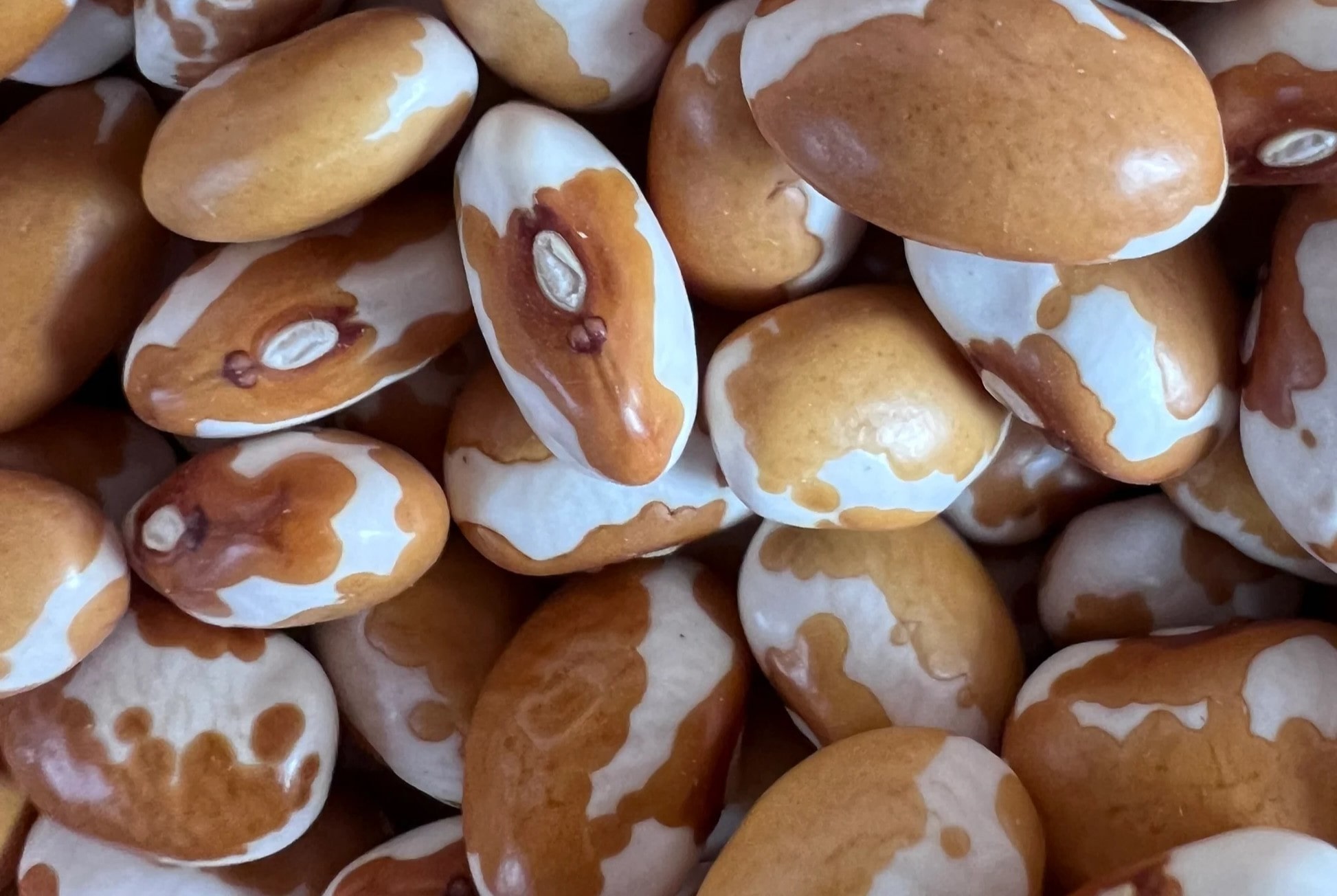
Zuni Beans are a hidden gem in the world of legumes. Originating from the Zuni people of the American Southwest, these beans have a rich history and unique characteristics that set them apart. Why should you care about Zuni Beans? They are not only delicious but also packed with nutrients, making them a fantastic addition to any diet. Whether you're a foodie, a gardener, or someone interested in sustainable agriculture, Zuni Beans offer something for everyone. In this post, we'll uncover 15 fascinating facts about these beans, from their historical significance to their health benefits. Ready to learn more? Let's dive in!
Key Takeaways:
- Zuni Beans, a staple of the Zuni people, offer high protein and fiber, making them a nutritious choice for vegetarians and vegans. Their unique flavor and cultural significance make them a versatile and meaningful ingredient.
- Cultivating Zuni Beans has a positive environmental impact, as they are drought-resistant and enrich the soil. Their striking golden color, nutty flavor, and firm texture make them a visually appealing and satisfying addition to any dish.
What is Zuni Bean?
Zuni Bean, also known as the Zuni Gold Bean, is a unique legume with a rich history. Originating from the Zuni people of the American Southwest, this bean is not only a staple in their diet but also a part of their cultural heritage.
-
Ancient Origins: The Zuni Bean has been cultivated for over 1,000 years by the Zuni people. This long history makes it one of the oldest domesticated beans in North America.
-
Cultural Significance: For the Zuni, this bean is more than just food. It plays a role in their ceremonies and traditions, symbolizing sustenance and life.
Nutritional Benefits of Zuni Bean
Zuni Beans are not just culturally significant; they are also packed with nutrients. These beans offer numerous health benefits, making them a great addition to any diet.
-
High Protein Content: Zuni Beans are an excellent source of protein, making them a great option for vegetarians and vegans looking to increase their protein intake.
-
Rich in Fiber: These beans are high in dietary fiber, which aids in digestion and helps maintain a healthy gut.
-
Packed with Vitamins and Minerals: Zuni Beans contain essential vitamins and minerals, including iron, magnesium, and potassium, which are vital for overall health.
How to Cook Zuni Bean
Cooking Zuni Beans can be a delightful experience. Their unique flavor and texture make them a versatile ingredient in various dishes.
-
Soaking is Key: To ensure even cooking, soak Zuni Beans overnight. This helps soften them and reduces cooking time.
-
Slow Cooking: These beans benefit from slow cooking methods, such as simmering on the stove or using a slow cooker, to bring out their full flavor.
-
Versatile Ingredient: Zuni Beans can be used in soups, stews, salads, and even as a side dish. Their mild, nutty flavor pairs well with many ingredients.
Environmental Impact of Zuni Bean Cultivation
Growing Zuni Beans has a positive impact on the environment. Their cultivation practices are sustainable and beneficial to the ecosystem.
-
Drought-Resistant: Zuni Beans are naturally drought-resistant, making them an ideal crop for arid regions and reducing the need for excessive water use.
-
Soil Enrichment: These beans help enrich the soil by fixing nitrogen, which improves soil fertility and reduces the need for chemical fertilizers.
Unique Characteristics of Zuni Bean
Zuni Beans have several unique characteristics that set them apart from other beans. These traits contribute to their popularity and continued cultivation.
-
Distinct Color: The beans have a striking golden color, which makes them visually appealing in various dishes.
-
Nutty Flavor: Zuni Beans have a mild, nutty flavor that distinguishes them from other beans, adding a unique taste to recipes.
-
Firm Texture: Even after cooking, Zuni Beans maintain a firm texture, providing a satisfying bite in every dish.
Preservation and Storage of Zuni Bean
Proper storage of Zuni Beans ensures they remain fresh and retain their nutritional value. Here are some tips for preserving these beans.
-
Store in a Cool, Dry Place: Keep Zuni Beans in an airtight container in a cool, dry place to prevent moisture and pests from spoiling them.
-
Long Shelf Life: When stored correctly, Zuni Beans can last for several years, making them a reliable pantry staple.
Final Thoughts on Zuni Beans
Zuni beans aren't just another legume. They hold a rich history and offer numerous health benefits. Packed with protein, fiber, and essential nutrients, these beans can boost your diet. Their unique flavor makes them a versatile ingredient in various dishes, from soups to salads. Plus, growing Zuni beans supports sustainable agriculture, benefiting both the environment and local farmers.
Whether you're a foodie looking to try something new or someone interested in nutritious eating, Zuni beans are worth a spot in your pantry. Their cultural significance and health perks make them stand out. So next time you're at the market, grab a bag and experiment with some recipes. You'll not only enjoy a tasty meal but also contribute to preserving a piece of agricultural heritage. Happy cooking!
Frequently Asked Questions
Was this page helpful?
Our commitment to delivering trustworthy and engaging content is at the heart of what we do. Each fact on our site is contributed by real users like you, bringing a wealth of diverse insights and information. To ensure the highest standards of accuracy and reliability, our dedicated editors meticulously review each submission. This process guarantees that the facts we share are not only fascinating but also credible. Trust in our commitment to quality and authenticity as you explore and learn with us.


